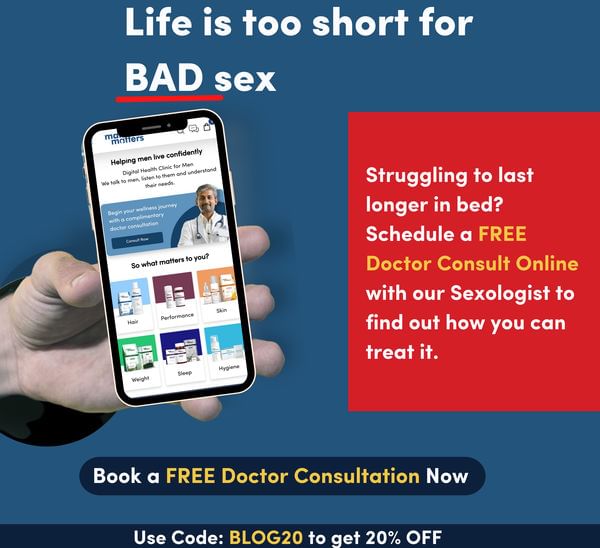Nightfall, also known as nocturnal emissions, is a common occurrence that many men experience throughout their lives. It refers to the involuntary discharge of semen during sleep. While it is a natural process for the body to get rid of excess semen, frequent or excessive nightfall can be a cause for concern. There are various factors that can contribute to this problem, including hormonal imbalances, stress, anxiety, and poor sleep hygiene. However, there are several effective treatments and home remedies available that can help alleviate the symptoms of nightfall. In this article, we will explore the causes, treatments, and home remedies for nightfall to provide a comprehensive understanding of this issue and offer relief.

What is Nightfall or Wet Dreams or Swapandosh?
Nightfall is a natural physiological occurrence that typically occurs in adolescent and young adult males during their sleep. It refers to an involuntary ejaculation of semen during sleep, often accompanied by sexual dreams or fantasies.
Nocturnal emissions are a normal part of male sexual development and are usually not a cause for worry. They occur as a result of the body’s natural process of releasing excess semen, and they are not related to any underlying medical conditions.

Why Does Nightfall Occur So Frequently?
For males in their adolescence and early adulthood, nightfall is a natural and common occurrence. It occurs when a male ejaculates while sleeping, usually during a sexually charged dream.
There are a few reasons why nightfall occurs so frequently:
1. Hormonal Changes
During puberty, testosterone levels rise, which increases sexual desire and activity, including nocturnal emissions.
2. Sexual Arousal
Dreams or other stimuli can awaken the brain even when asleep, causing nocturnal emissions.
3. Lack of Sexual Activity
If a man is not sexually active or masturbates frequently, his body may release sperm at night to clear the reproductive system.
It is crucial to understand that nightfall is a natural occurrence that is not harmful. It is not associated with a lack of sexual health or dysfunction, and it has no negative physical or psychological consequences.

How Many Times Nightfall is Normal in a Week?
There is no exact or established number of times in a week when nightfall is considered normal or abnormal. The frequency of nightfall varies greatly between individuals and is affected by a variety of factors such as age, sexual activity, and hormonal changes.
Males experience nightfall more frequently during puberty and adolescence due to hormonal changes and increased sexual activity. The frequency of nightfall may decrease as a male reaches adulthood, depending on his sexual activity and overall health.
Nightfall a few times a month is considered normal and does not indicate any health problems.
Nightfall Causes
Nightfall occurs when the body needs to expel accumulated sperm, which usually happens while sleeping. While nightfall is a natural occurrence, certain factors can amplify its occurrence. Here are some of the most common causes of nightfall:
1. Sexual Arousal
Sexual arousal can cause the body to produce and store sperm, which can then be released while sleeping. This is a normal reaction and is not necessarily cause for alarm.
2. Hormonal Changes
Hormonal changes, especially during puberty, can increase sexual desire and semen production, resulting in more frequent nightfall.
3. Infrequent Sexual Activity
If a person is not engaging in sexual activity regularly, the body may need to release semen during sleep, leading to nightfall.

4. Stress and Anxiety
Stress and anxiety can increase the production of hormones that stimulate the sexual organs, leading to an increased likelihood of nightfall.
5. Certain Medications
Nightfall can be caused by certain medications or medical conditions, such as prostate or urinary tract infections.
Nightfall Side Effects
While it is a natural process and generally not harmful, it can cause some side effects in certain cases. Here are some of the potential side effects of nightfall:
1. Discomfort or Embarrassment
For some individuals, the occurrence of nightfall can cause discomfort or embarrassment, which may impact their quality of life and self-esteem.
2. Weakness and Fatigue
In some cases, frequent or excessive nightfall may lead to weakness, fatigue, or a general feeling of lethargy. This may be due to the loss of semen, which contains essential nutrients and energy.

3. Erectile Dysfunction
In rare cases, frequent or excessive nightfall may lead to erectile dysfunction, which can cause difficulty achieving or maintaining an erection.
4. Sleep Disturbances
Nightfall can cause sleep disturbances in some people, resulting in poor sleep quality or insomnia.
It is important to remember that nightfall is a natural and normal process that does not always necessitate treatment unless it causes distress or discomfort.
Nightfall Treatment – Remedies That Work
Here are six remedies that may help reduce nightfall:
1. Kegel Exercises
Kegel exercises can help to strengthen the pelvic floor muscles, which can help to control and prevent nightfall. To perform Kegel exercises, tighten and hold the muscles used to stop the flow of urine, then relax and repeat.

2. Reduce Stress
Stress can contribute to the occurrence of nightfall, so reducing stress through practices like meditation, yoga, or deep breathing may help to reduce the frequency of nightfall.
3. Ashwagandha
Ashwagandha is an herb commonly used in Ayurvedic medicine to promote overall health and reduce stress. It may help to regulate hormone levels and reduce the frequency of nightfall.
4. Stop Watching Pornography
Watching pornography can contribute to the occurrence of nightfall, so reducing or eliminating exposure to pornographic material may help to reduce the frequency of nightfall.
It is important to note that everyone’s experience with nightfall may vary, and what works for one person may not work for another. If nightfall persists or causes significant distress, it is advisable to consult a healthcare professional for a proper diagnosis and appropriate treatment.




